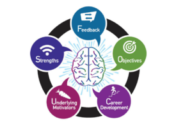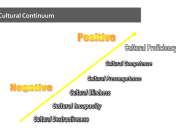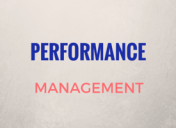HR Roundtable: The Impact of Behavior on Performance

The Impact of Behavior on Performance
Everyone has certain behavior patterns, such as creativity, discipline, routine and motivation, and most of us have varying degrees to which those behaviors form our habits. Adrian Wood, co-founder of ShadowmatchUSA, led a discussion at a recent DFW HR Roundtable, hosted by Pearson Partners for senior corporate human resources executives in the North Texas area, on how different behavioral traits can affect performance in the workplace and in interpersonal relationships. Here is a summary of Adrian’s presentation.
Behaviors, Habits and Performance
By Adrian Wood, Co-Founder, ShadowmatchUSA
There are many things that affect employee performance at work, but where do habits and behaviors fit in? There is a variety of tools to measure and analyze your teams and the environment they work in, and all will have a part to play in their success in your organization, along with their level of stress and well-being. Some things will be out of their control, but you may be surprised at how simple insight can make a big difference to achieving your corporate goals.
A salesperson cannot be successful if the product he or she sells doesn’t work, nor can a financial group manage revenue without a strong financial system. So, let’s focus on people, rather than uncontrollable elements.
Fundamentally, people come to work to succeed, so what is the difference between those individuals who succeed and those who fail?
As an example, maybe your team works on a high-volume production line of some sort. The daily role may be quite repetitive and perhaps even mundane. Would habits play a part in whether someone would be good at or enjoy this role? How about a startup environment, where absolutely every aspect of the business is new, unknown, or in development? Are certain behaviors going to be beneficial to enduring this free-form process?
Two of the 19 behaviors that Shadowmatch focuses on are “routine” and “discipline.” It’s highly likely that these would have a big impact on the two roles mentioned above. Some people have a strong habit of routine, so they find strength and comfort in knowing that the day follows a certain pattern. Others have no set pattern of routine behavior; in fact, some people become stressed and have to put effort into behaving that way. Discipline is a related behavior: people with strong discipline habits crave structure, rules, and order, and will easily create it where it does not exist. At the opposite end, some people have to work without policy constraints and regulations.
For both of these habits, you can start to see which habit (or lack of) would be best-suited to which environment. Practically speaking, someone with a habit of routine will work more easily in an environment that is repetitive, and an absence of this habit would be essential in a startup role. What affects our performance is when we inherently have (or lack) the key habit that is required to perform at our peak in a given situation or environment.
It is possible to alter, or perhaps more accurately, “flex,” our behavior to try to match the environment, but unfortunately, that takes a toll on our well-being. The worse the match between the individual and the environment, the more effort and stress is required to try to “fit.” Over time, this becomes draining, as individual habits are very difficult to change and will always want to return to their starting point.
Knowing and understanding this is a big part of understanding how you can affect your team’s performance. As a quick test, review a list of several different behaviors measured in a sample personal feedback report by Shadowmatch, and try to identify which of these are strongest in yourself or your team. Then go through them again and apply each one to the environment that you work in. Looking at the two lists side-by-side will give you an initial idea of the fit and level of stress and effort affecting you and/or your team.
This is a very rough test that should not be used to take specific action, but it gives you an idea of some of the practical and fundamental principles we ignore every day that affect us over time. It also highlights the fact that you may have habits that you are not making the most of.
If this sounds intriguing, the next step is to take the Shadowmatch Behavioral Challenge and see if you know what habits are key to the performance of your team or role. You may be surprised by what you don’t know.
Adrian Wood is co-founder of ShadowmatchUSA. He is an experienced business leader with a passion for making companies of all sizes—from startups to global businesses—successful through team development and unique leadership and management strategies across functions and divisions. Adrian currently partners with major clients, including Bimbo Bakeries, Cisco, Citrix and Sprint, to make them even more successful by focusing on workplace excellence through team behaviors.
CALL FOR SPEAKERS
We are seeking speakers for our HR Roundtable events. If you, or someone you know, has expertise in presenting on an executive-level HR-related topic, please contact us.
View past Roundtable presentations online now.
Are you a member of the DFW HR Roundtable? If you are a human resources executive who is interested in joining our group, please check out our LinkedIn group.













